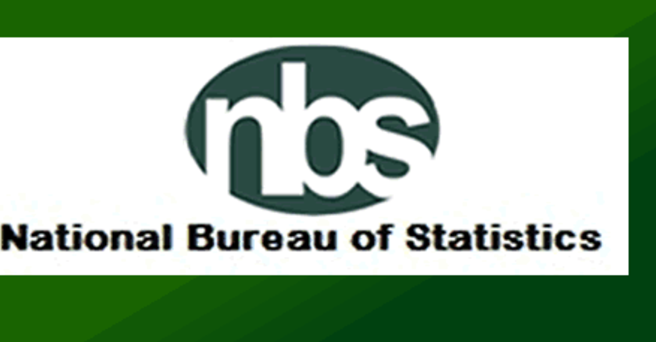NBS: ICT Sector Contributed 18.44% To Nigeria’s GDP In Q2, 2022

The National Bureau of Statistics (NBS) yesterday said Information and Communication Technology (ICT) sector had contributed 18.44 per cent to ‘Nigeria’s Gross Domestic Product Report’ for Q2 2022.
This is as the Minister of Industry, Trade, and Investment, Mr. Niyi Adebayo, said Nigeria is currently working to establish a strategy for e-commerce that will boost the growth of the sector.
The Technical Assistant Research and Development to the Minister of Communications and Digital Economy, Dr. Femi Adeluyi, made this known in a statement in Abuja.
Adeluyi said that the digital economy sector under Prof. Isa Pantami has continued its trend of playing a key part in the growth of Nigeria’s economy.
According to him, the oil sector contributed 6.33 per cent to the total real GDP in Q2 2022, which was lower than the contribution in Q2 ‘2021 and Q1 ‘2022, where it contributed 7.42 per cent and 6.63 per cent, respectively.
The non-oil sector’s contribution grew by 4.77 per cent in real terms, resulting in a 93.67 per cent contribution to the nation’s GDP in the Q2 ‘2022.
This was higher than Q2 ‘2021 and Q2 ‘2022, where it contributed 92.58 per cent and 93.37 per cent, respectively,
he said.
Pantami said that the growing contribution of the sector to the GDP was a result of the commitment of the current administration to the development of the digital economy.
He said that the unprecedented contribution of ICT to Nigeria’s GDP can also be attributed to the dynamic and results-oriented leadership of the sector.
He, however, said that the Report had shown how critical the ICT sector was to the growth of the country’s digital economy and, by extension, the general economy.
The diligent implementation of the National Digital Economy Policy and Strategy (NDEPS) for a Digital Nigeria, stakeholder engagement, and creation of an enabling environment have all played an important role in this achievement.
The support of President Muhammadu Buhari has contributed immensely to the impressive developments in the sector.
The unprecedented contribution of ICT to Nigeria’s GDP can also be attributed to the dynamic and results-oriented leadership of the sector,
he said.
Pantami congratulated stakeholders in the digital economy ecosystem for this cheering news.
He called on all sectors to take advantage of the Federal Government’s new focus on the digital economy to enable and improve their processes through the use of ICTs.
He added:
This would enhance the output of all the sectors of the economy and boost Nigeria’s GDP.
Meanwhile, Minister of Industry, Trade and Investment, Adebayo, has said Nigeria is currently working to establish a strategy for e-commerce that will boost the growth of the sector.
The minister stated this yesterday in Abuja at a stakeholder dialogue on e-commerce and digital trade policy for Nigeria.
Adebayo noted that there is no better time than now to diversify Nigeria’s economy away from the oil sector by building a dynamic, profitable, and efficient non-oil sector to reposition the economy on a sustainable growth path.
The minister who was represented by the ministry’s Director of Commodities and Export Department, Mr. Suleman Audu, said Nigeria is actively participating in the ongoing negotiation at the World Trade Organisation, to boost e-commerce.
He said:
Nigeria is yet to fully harness the inherent opportunities in the e-commerce value chain, largely due to inadequate investment, coupled with inadequate information on the opportunities in the sector and the inability of Government to provide the required enabling environment.
As such, the government has identified e-commerce as a major priority programme that will play a critical role in the promotion of commodity trade, especially with the realities of the unprecedented Covid-19 global pandemic.
The current e-commerce spending in Nigeria is estimated at $13 billion per annum and is projected to rise to about $75 billion in revenues per annum by 2025. The market outlook for Nigeria’s e-commerce shows that the number of online shoppers in the country, which was at 76.7 million in 2021, is expected to hit 122.5 million by 2025. The figures from the Nigeria Inter-Bank Settlement System, also show that Nigeria’s e-payment transactions increased by 85.5 per cent year-on-year to N171.99 trillion in August 2021,
he further stated.

Justin Nwosu is the founder and publisher of Flavision. His core interest is in writing unbiased news about Nigeria in particular and Africa in general. He’s a strong adherent of investigative journalism, with a bent on exposing corruption, abuse of power and societal ills.













